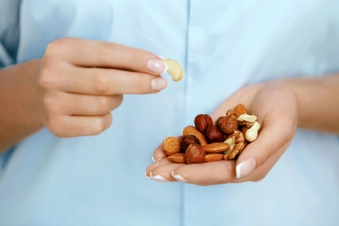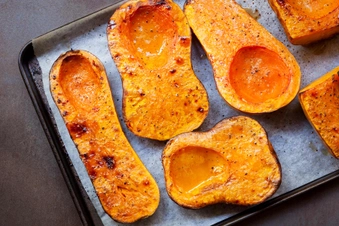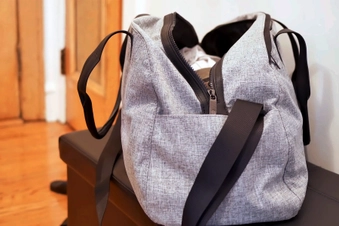Tips for Everyday Challenges From Crohn's

Load Up on Liquids
It’s especially important to stay hydrated if your Crohn’s is flaring up. Drink a lot and often during the day. Water is best, but broth or tomato juice can also hit the spot if you need more flavor. Avoid anything that has alcohol or caffeine in it, since those can make you pee more. Skip the straw and sip slowly so you don’t add extra gas to your gut.

Lower Your Stress Level
Stress is part of life -- and having a chronic condition adds to that. And it can make your symptoms worse and trigger flare-ups. The key is managing your stress as much as you can. Things that help include exercise, relaxation techniques such as meditation, talking to a trained therapist who can help you process your feelings and develop habits for self-care, and getting enough sleep.

Snack Small
Instead of three meals a day, try eating lighter bites more often. Your body will have an easier time digesting small spreads than slogging through a big, heavy meal in the morning, middle of the day, and evening.

Be Smart About Fiber
Cooked fruits and veggies are easier to digest than fresh produce. Reach for fruits like bananas and melons over fruits with seeds and skin. Pass over raw “cruciferous” veggies, like broccoli, cauliflower, kale, and cabbage if you have trouble with them. And during flares, stick with choices like squash, potatoes, asparagus tips, and cucumbers.

Plan Your Outings
Look up menus online before eating somewhere new so you don’t have to stress over what to order at the table. Know where bathrooms are any time you’re out and about, in case you need to make a pit stop quickly.

Stick With Your Treatment Plan
Take your medications on time and as your doctor recommends. If you have trouble remembering your dose, set alerts on your smartphone or an alarm clock to give you a nudge. Keeping the same routine every day can also help you stay on track with your treatment.

Create a Kit
Make yourself an on-the-go Crohn’s emergency kit to help you deal with unexpected situations. Supplies could include a change of underwear, wet wipes, a plastic bag for soiled clothes, hand sanitizer, and air freshener.

Check on Dairy
For some people, dairy products such as cheese, milk, and ice cream might mean extra gas, diarrhea, and stomach pain. Try cutting them out of your diet to see if your symptoms get better. If you do, make sure you get enough calcium and vitamin D from other sources.

Keep a Food Diary
Track what you eat and drink over time and how you feel afterward. Then look for patterns in your entries. It may help you spot foods that give you problems so you can avoid them in the future.

Pace Yourself
Look for ways to keep up your favorite activities, but don’t overload your schedule. The key is knowing what works for you and when. Keep doing what’s fun, and plan ahead, thinking about what else you have to do that day and what can wait.

Know Your Crohn’s
In order to best manage your disease, you need to understand it. Talk to your doctor, ask questions, and read up on the condition on your own so you have a good grasp on how it works and what to expect.

Reach Out
Support groups, whether in person or online, can connect you to others who know what it’s like to deal with Crohn’s on a daily basis. You can share tips and tricks, talk symptom management, and encourage each other.
Show Sources
IMAGES PROVIDED BY:
1) Ridofranz / Getty Images
2) Baks / Getty Images
3) puhhha / Getty Images
4) robynmac / Getty Images
5) IrKiev / Getty Images
6) Ridofranz / Getty Images
7) moiseXVII / Getty Images
8) bit245 / Getty Images
9) shironosov / Getty Images
10) DragonImages / Getty Images
11) eggeeggjiew / Getty Images
12) monkeybusinessimages / Getty Images
SOURCES:
Crohn’s & Colitis Foundation: “What Should I Eat?” “Navigating Daily Life with IBD,” “Fact Sheet: Young Adults and IBD,” “Navigating IBD as a Teen.”
Mayo Clinic: “Crohn’s Disease.”
The National Institute of Diabetes and Digestive and Kidney Diseases: “Eating, Diet, & Nutrition for Crohn’s Disease.”